Dealing with Cloudy Vision?
Restore Clarity with Cataract Surgery in London
Say goodbye to cloudy, blurry vision with premium lenses that restore clarity, comfort, and freedom, provided by top Harley Street eye surgeons.
From £3,250* Per Eye
Dealing with Cloudy Vision?
Restore Clarity with Cataract Surgery in London
Say goodbye to cloudy, blurry vision with premium lenses that restore clarity, comfort, and freedom, provided by top Harley Street eye surgeons.
From £3,250* Per Eye
★★★★★
Rated by London Patients
30+
years of surgical experience
Aftercare
1-Year on all Treatments
Technology
Alcon Refractive Suite
Why Choose Precision Vision London?
Expert Surgeons. Advanced Technology. Personalised Care.
At Precision Vision London, your vision is in the safest hands. Led by Dr. Radwan Almousa MD, an award-winning refractive and cataract surgeon with extensive international training, we specialise in delivering outstanding lens replacement results through precision diagnostics, world-class laser technology, and individually tailored treatment plans.

The best way to find out which treatment suits you is to book a consultation, where we’ll carry out advanced diagnostic scans and give you a clear recommendation.
How Cataract Surgery Works?

At Precision Vision London, we provide advanced Cataract Surgery in Harley Street, one of London’s most prestigious medical districts. Cataract surgery involves gently removing the eye’s natural, clouded lens and replacing it with a premium intraocular lens (IOL) to restore clear, sharp vision.
A cataract is a common age-related condition, though it can also be caused by genetics, long-term medication use, or eye injury. It develops when the eye’s natural lens becomes cloudy, leading to symptoms such as blurred vision, difficulty in low light, and increased sensitivity to glare.
Cataract surgery is the only effective treatment and is recognised worldwide as one of the safest and most successful procedures. The operation itself is quick, safe, and virtually painless, typically taking less than 20 minutes per eye. In most cases, both eyes can be treated on the same day, allowing patients to leave with dramatically improved vision.
Because every patient’s eyes and lifestyle are unique, the intraocular lens is carefully chosen to suit individual visual needs—whether for distance, near vision, or astigmatism correction. Under the care of Dr. CT Pillai, one of Harley Street’s most respected and experienced cataract surgeons, patients can expect personalised treatment and exceptional outcomes.
With cutting-edge technology, a patient-first approach, and internationally acclaimed expertise, Cataract Surgery at Precision Vision London provides a proven pathway to lasting clarity, confidence, and freedom from glasses.
Are You Eligible for Cataract Surgery?
Most adults diagnosed with cataracts are suitable candidates for Cataract Surgery, the only effective treatment for this condition. Cataracts occur when the natural lens of the eye becomes cloudy, causing symptoms such as blurred vision, difficulty seeing in low light, increased glare sensitivity, or faded colours.
Cataract Surgery works by removing the clouded lens and replacing it with an advanced intraocular lens (IOL), restoring clarity and improving overall visual quality. This procedure is particularly beneficial for individuals whose cataracts interfere with daily tasks such as reading, driving, or recognising faces.
You may not be suitable if you have untreated eye conditions such as severe glaucoma, advanced macular degeneration, corneal disease, or uncontrolled systemic health problems like diabetes or autoimmune disorders. In such cases, your surgeon will carefully evaluate and recommend the safest approach before proceeding with surgery.
At Precision Vision London, every patient undergoes a comprehensive diagnostic assessment to ensure personalised recommendations and the best possible outcomes.
Happy Patients
Transparent Pricing for your Cataract Surgery in London
Affordable Excellence in Vision Care. At Precision Vision London, our prices are fully transparent and include consultation, surgery and aftercare.
Cataract Surgery Starts from £3,250* per eye
Consultation Fee – £300
This deposit is taken at the time of booking and is non-refundable
Monofocal Lens – £3250 per eye
Distance correction without astigmatism.
Monofocal Toric Lens – £3550 per eye
Distance correction for patients who have an astigmatism.
Multifocal Lens – £3750 per eye
Multi-distance correction (distance, near and intermediate vision)
Multifocal Toric Lens – £4300 per eye
The type of lens a patient is suitable for is dependent on whether there is an astigmatism present and the results of the consultation. A deposit of £1250 per eye is required when reserving treatment and is deducted from the final cost.
Your 4 Steps Treatment Plan
Our approach revolves around prioritising your optimal well-being.
Prior to your consultation
Your first point of contact will be with Precision Vision London’s highly trained and knowledgeable patient coordinators.
Treatment
On the day of your treatment, our clinical team will guide you through the process and address any concerns or questions you may have.
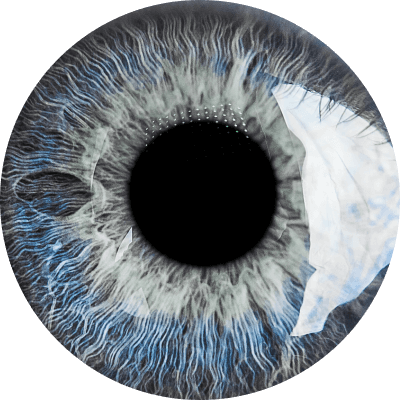
Consultation
At Precision Vision London, we believe that it is essential to be selective to ensure that every patient has the best treatment to suit their visual and lifestyle needs which is why determining suitability is incredibly important.
Aftercare
Your aftercare begins immediately after treatment when you are taken to the recovery room to relax and, when you are ready to leave, our specialist nurse will examine you before you go home.
Cost of Cataract Surgery London starts from just £3,250*
Cataract Surgery FAQ's
The first successful lens or cataract surgery was performed by Sir Harold Ridley in 1949 and the procedure has an exceptionally high safety record developed over more than 60 years.
Cataract treatment is the most commonly performed eye procedure in the world and millions of operations are carried out every year. With the latest micro-incision phacoemulsification technology, no stitches are required and recovery is very quick. There are no injections as anesthetic drops are used instead.
The CLE procedure is virtually identical to cataract surgery. The only difference between the two is that a clear lens is removed in the CLE procedure and a cloudy lens is removed in cataract surgery.
Patients that have Cataract treatment with the NHS are not given an option regarding lenses and are solely offered Monofocal lenses that will only correct distance vision, leaving you with a reading prescription. Piggyback lenses can be used to treat these patients and a secondary lens (Multifocal) is implanted to correct your reading vision.
No pain is felt as anaesthetic drops are used to numb the eye. However, some discomfort or pressure can be felt during the procedure.
You will be able to perform most everyday tasks the day after surgery without any difficulty but the amount of time needed off will vary according to each individual. Your working environment will also be taken into consideration and the surgeon will advise on what precautions should be taken at your consultation. If there is an interim period between both eyes being treated, it can affect how much time you may need to take off work.
Your initial assessment, treatment days, one day after surgery, the two week and three months aftercare appointments are all usually carried out at our Harley Street clinic. After this time we can hand you over to the care of one of our many nationwide independent optometrist partners, allowing you to stay closer to home for the remainder of the follow-up appointments.
A lifetime! Once the natural lens has been removed and replaced with a lens implant you will likely never require surgery again. The materials from which the lenses are made have been subject to accelerated ageing tests. Results have demonstrated that the lens material will last in excess of 150 years before showing signs of degradation.
A multifocal lens has more than one point of focus, enabling clear distance, intermediate and near vision. It has revolutionised the results of treatment and allows for patients’ to be completely free from all visual aids.
No. The optical design is completely different to varifocal spectacles. Instead of you needing to move your head to adjust your focus, you will be able to comfortably see distance and near without having to make any changes. Layered concentric circles are used to correct each form of prescription issue allowing for simultaneous correction of all fields of vision.
Most patients notice a difference to their vision immediately after the procedure. Distance vision is the first field of vision to settle, typically taking 24 to 48 hours. However, it can take a bit of time for your brain to adjust to your new reading vision.
There will be a few restrictions after treatment. For example, it is recommended that you avoid any situation where you may be hit in the eye, like playing sports. At your consultation, we will take into consideration your lifestyle and hobbies when recommending any restrictions.
All our treatments are carried out at our clinic on 77 Harley Street. We are one of the very few clinics in UK where everything from consultation to surgery and aftercare is conducted under one roof.
The implant is inside the eye so it cannot be felt, it will not feel like a contact lens and you will be completely unaware that it is there, apart from experiencing greatly improved vision.
Meet Our Surgeon
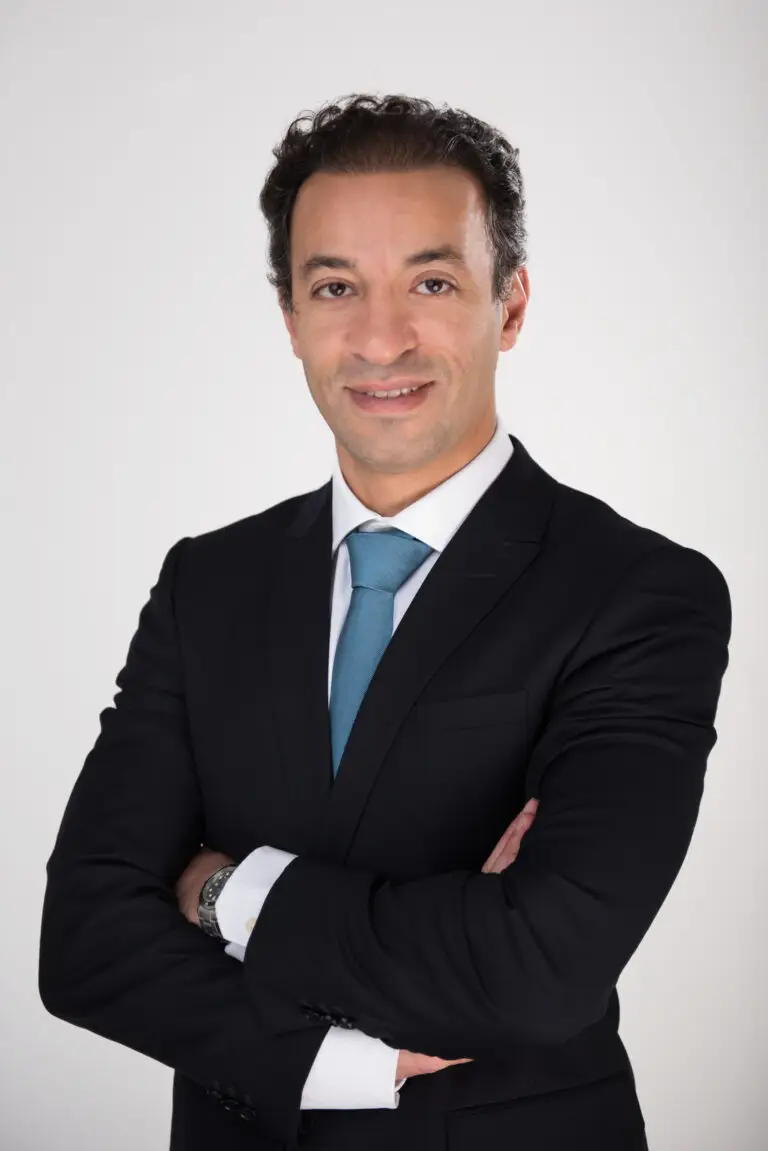
Dr. Radwan Almousa MD, FRCOphth, CertLRS
Meet Dr. Radwan Almousa, a renowned ophthalmologist with Fellowships in Oculoplastics, Cornea, Anterior Segment, and Refractive Surgery. With an illustrious career spanning some of the world’s leading hospitals, Mr. Almousa is celebrated for his exceptional skill in managing complex eye conditions and performing advanced surgical procedures.
Life-Changing Cataract Surgery in London
At Precision Vision London, we provide advanced Cataract Surgery the gold-standard treatment for restoring clarity when cloudy or blurred vision begins to impact daily life. This safe and proven procedure replaces your clouded natural lens with a premium intraocular lens (IOL), giving you sharper, brighter vision and reducing your dependence on glasses.
As a trusted, independent Harley Street clinic, we are committed to personalised care and life-changing results. Under the guidance of our Medical Director, Dr. CT Pillai a world-renowned ophthalmologist with over 30 years of experience our expert surgical team ensures you receive the highest standards of safety, precision, and care throughout your journey.
✅ Restores clear, sharp vision lost to cataracts
✅ Reduces or eliminates the need for reading glasses, bifocals, or varifocals
✅ Premium lens technology tailored for distance, near, and astigmatism correction
✅ Quick, safe, and painless procedure with same-day treatment available
Call us today 020 3884 6805 and take the first step towards a glasses-free life!
About Cataract Surgery
At Precision Vision London, we recognise the significant impact that cataracts can have on your eyesight and daily life. As a distinguished clinic specialising in cataract care, we are committed to delivering expert guidance and cutting-edge solutions to help you achieve optimal vision throughout your journey.
Understanding Cataracts:
A cataract occurs when your eye’s natural crystalline lens becomes cloudy and gradually loses its transparency. As you age, this lens naturally becomes firmer and thicker, resulting in opacity that restricts light from reaching the retina properly. This condition causes vision to become increasingly cloudy and unclear, similar to viewing the world through a misty window.
Since cataracts affect the eye’s natural lens, conventional vision correction methods such as spectacles or contact lenses prove ineffective. As cataracts progress over time, they become the primary cause of vision impairment in people aged fifty and above. The condition may affect either one or both eyes, and its gradual progression might initially go undetected. However, without proper treatment, cataracts can eventually cause complete vision loss.
Treatment and Restoration of Vision:
The encouraging aspect is that cataracts can be successfully removed through surgical intervention, enabling complete vision restoration. Early detection plays a vital role, as prompt treatment can prevent progressive vision deterioration. At Precision Vision London, we offer comprehensive cataract care, ensuring personalised treatment approaches suited to your individual requirements.
Advanced Lens Replacement Options:
With ongoing technological advancements, our treatment options continue to evolve. While Multifocal Intraocular Lenses (IOLs) were developed to improve both distance and near vision, our digital lifestyle has highlighted the necessity for intermediate vision correction. This led to the development of Trifocal IOLs – the most advanced generation of multifocal lenses that transform vision correction.
Trifocal IOLs deliver a complete solution by addressing distance, near, and intermediate vision needs. In today’s world, dominated by digital devices such as computers, tablets, and mobile phones, enhanced intermediate vision has become increasingly crucial. Following eye lens replacement surgery, our patients enjoy the liberty of living largely spectacle-free for most daily activities.

Types of Cataracts:
Knowledge about different cataract types is crucial for making well-informed decisions. Here are three primary types:
- Subcapsular Cataract: Forming at the lens’s posterior, this type is often associated with conditions like diabetes or steroid usage.
- Nuclear Cataract: Developing within the lens’s central region, this variety typically relates to the natural ageing process.
- Cortical Cataract: Distinguished by white, wedge-like cloudy regions, this type forms in the lens cortex surrounding the central nucleus.
Beyond these, cataracts can present in various other forms:.
- Congenital Cataracts: These rare cataracts manifest either at birth or develop within the first twelve months of life, presenting a distinct challenge compared to age-related variants.
- Secondary Cataracts: These develop as a consequence of underlying health conditions or medication use. Individuals with diabetes or glaucoma face an increased likelihood of developing this type of cataract.
- Traumatic Cataracts: Occurring in eyes that have experienced physical trauma, these cataracts may remain dormant for several years following the initial injury before becoming apparent.
- Radiation Cataracts: These can emerge as an unwanted consequence of cancer-related radiation therapy.

Your Journey to Clear Vision Starts Here:
At Precision Vision London, we stand as your dedicated partner in achieving optimal eye health. Our specialist team excels in comprehensive cataract care, from initial detection through to advanced surgical procedures, ensuring you can lead a life unburdened by cataract-related vision challenges.
Don’t allow cataracts to diminish your quality of life. Visit our prestigious Harley Street clinic today and discover the Precision Vision London advantage – where exceptional care meets surgical excellence, and crystal-clear vision becomes your reality.
Cataracts develop as part of the natural ageing process affecting the lens of the eye. In certain instances, younger individuals may also experience cataracts due to circumstances like injury, nutritional deficiencies, or underlying medical conditions.
Whilst the precise mechanism behind age-related cataracts remains unclear, scientists believe it occurs when lens proteins aggregate and form clusters.
This phenomenon begins in a localised area of the lens, gradually expanding as protein clumping continues, resulting in the progressive growth of the cataract. Various elements are thought to influence the formation of age-related cataracts, including:
Over time, patients will develop symptoms that can include:

Cataracts can severely impact your ability to lead a fulfilling daily life. Basic activities like reading materials and operating vehicles may become impossible due to your cataracts.
Nevertheless, a 2013 research revealed that individuals who undergo cataract surgery experience a 36% improvement in their quality of life when compared to those who do not have the procedure.
This finding further emphasises why, if you’re affected by cataracts, you should give serious thought to undergoing cataract surgery at our Harley Street London facility. Our location on Harley Street makes us readily accessible, including for residents from nearby regions such as Essex and Hertfordshire.
There’s a pressing need to address cataracts once they begin developing. While some cataracts may cease progressing, they won’t naturally decrease in size. The solution lies in cataract eye surgery, a routine surgical procedure we regularly perform at Precision Vision London.
Treatment for Cataract Surgery

Experience a personalised solution for cataract treatment at Precision Vision London, where our specialised Cataract Surgery, similar to Clear Lens Exchange, is our primary focus. We excel in delivering customised cataract procedures, carefully designed to address the specific requirements of every patient.
Our technique involves the careful extraction of the cataract from the eye’s natural crystalline lens, followed by the precise placement of an intraocular lens (IOL) implant to enhance vision. The specific IOL chosen influences whether patients can achieve freedom from glasses post-surgery.
The cataract removal process is streamlined, requiring roughly 30 minutes for each eye, with both eyes receiving treatment on the same day. This intervention effectively restores vision diminished by cataracts, ranking it among the most common surgical procedures worldwide. Within the UK, medical professionals perform over 300,000 cataract operations yearly.
Begin your path to improved vision with Precision Vision London, where we combine safety, accuracy, and individual attention. Our goal is to optimise your visual health, helping you overcome cataract-related limitations. Schedule a visit to our clinic to witness the Precision Vision London advantage – where excellence meets expertise, and superior vision becomes reality.
Intraocular Lens Implants (IOLs)
In contrast to NHS facilities, Precision Vision London delivers exceptional care through customised treatments, specialising in intraocular lenses (IOLs) designed for your unique requirements. While standard providers typically offer basic Monofocal lenses, our dedication to individualised service ensures you receive the precise lens type that matches your daily activities and visual goals.
Through detailed assessment sessions, our expert surgeons evaluate your specific requirements to select the optimal intraocular lens solution. We recognise that each patient’s visual needs and daily routines differ, and we strive to optimise your vision across every range.
The development of Multifocal IOLs initially aimed to enhance both near and distant sight. Yet, with today’s technology-driven lifestyle demanding clear intermediate vision for laptop, tablet, and mobile phone use, Trifocal IOLs have emerged as the most advanced multifocal lens option.
Operating as an independent surgeon-managed facility, we maintain complete autonomy from lens manufacturers, allowing us to recommend the most suitable lens type for your needs, ensuring optimal surgical outcomes. This approach enables our London clinic patients to experience life post-cataract surgery without depending on glasses.
The transition to Trifocal lenses occurs smoothly and effortlessly. These advanced multifocal IOLs surpass the performance of varifocal spectacles or multifocal contact lenses, delivering superior visual clarity. The enhanced light transmission through the implanted lens improves mid-range vision while minimising night-time glare and haloes.
Clinical studies demonstrate high patient satisfaction rates, enhanced visual performance (particularly at night), and reduced reliance on corrective eyewear. Consider the possibility of achieving crystal-clear vision at every distance!
At Precision Vision London, we utilise these innovative Trifocal lenses with pride. Our independence from specific manufacturers enables us to address any prescription requirements. We’ve established our distinguished reputation by successfully treating patients previously rejected by other practices.
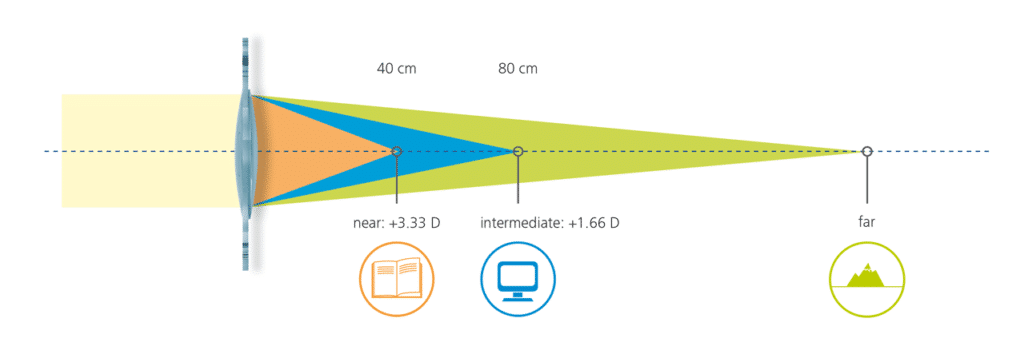
Begin your journey towards natural, clear vision with Precision Vision – where state-of-the-art technology meets personalised attention. Experience the Precision Vision London advantage at our clinic, where visual clarity and freedom from glasses become reality.
Types of IOL Implants
We provide several IOL options that deliver sharp vision across varying distances:
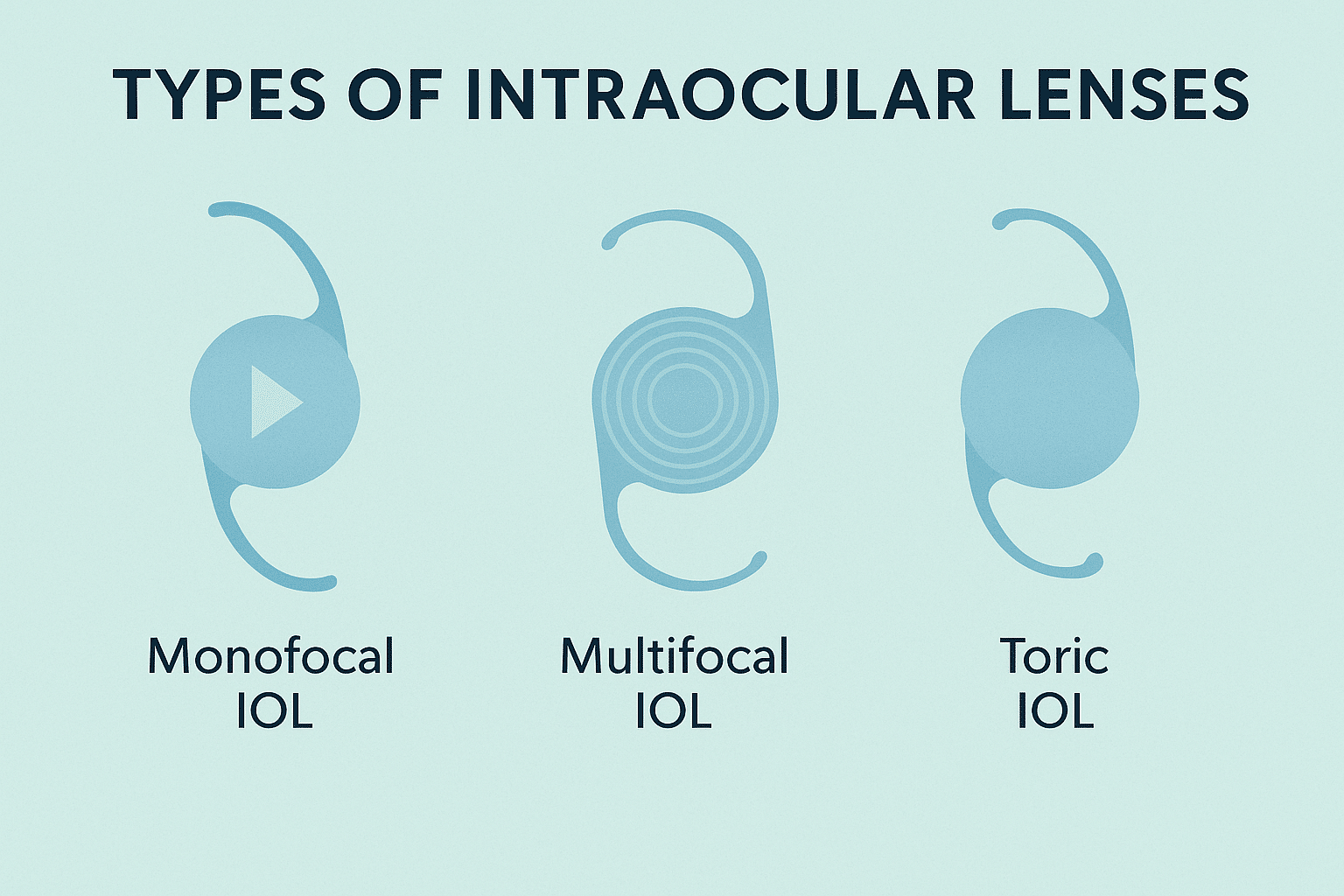
Lenses Available at Precision Vision
Precision Vision is a completely independent surgeon led clinic and have no affiliation with any manufacturers or paid consultants enabling us to choose the best lenses to fit our patients’ visual and lifestyle needs. We have access to the three most widely used Trifocal (intraocular lenses) IOLs:
We also provide to the two most commonly used Piggy back Trifocal lenses:
Technology used for Cataract Surgery in Harley Street London
The VERION Image Guided System
This is used to capture a digital reference image of the eye during the initial assessment which is used to create a surgical plan. This equipment is also used throughout the treatment allowing the surgeon to see all incisions and alignments in real time, improving accuracy and minimising errors especially whilst correcting astigmatism.
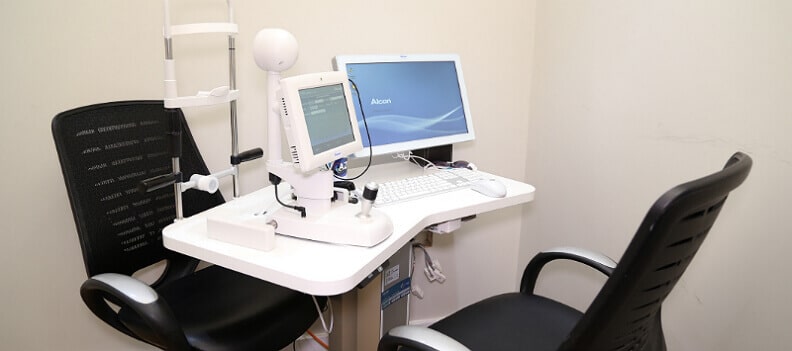
The Centurion Vision System
This is the newest phacoemulsification system available on the market, it breaks up and removes the natural lens. It allows for smaller incisions and is able to optimise every phase of the lens removal. The device also controls the intra-ocular pressure throughout the treatment and enhances the control of the surgeon, consequently improving the patient’s outcome and accelerating the recovery process.

The Lux-OR Ophthalmic Microscope
The Lux-OR LX3 with Q-VUE Ophthalmic Microscope is designed to provide superior visualisation throughout the surgical procedure, this microscope is able to expand the visual field with a highly stable, 6x greater red reflex zone, providing excellent visual detail with superior visualisation of the retina.





